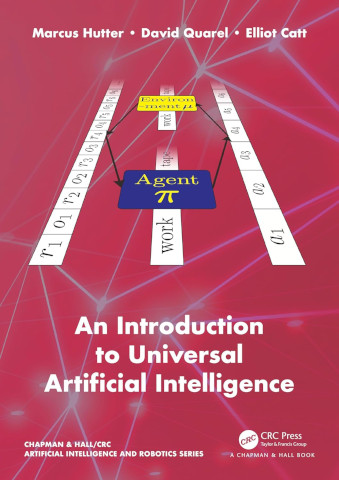@Book{Hutter:24uaibook2,
author = "Marcus Hutter and David Quarel and Elliot Catt",
title = "An Introduction to Universal Artificial Intelligence",
year = "2024",
url = "http://www.hutter1.net/ai/uaibook2.htm",
pdf = "http://www.hutter1.net/publ/uaibook2.pdf",
keywords = "Artificial general intelligence; algorithmic information theory;
Bayes mixture distributions; universal sequence prediction;
context tree weighting; rational agents; sequential decision theory;
universal intelligent agents; reinforcement learning;
games and multi-agent systems; approximation/implementation/application;
AGI-safety; philosophy of AI.",
support = "ARC grant DP150104590",
for = "010404(20%),080101(20%),080198(20%),080299(10%),080401(30%)",
}

 Order Information
Order Information
 Order Information
Order Information